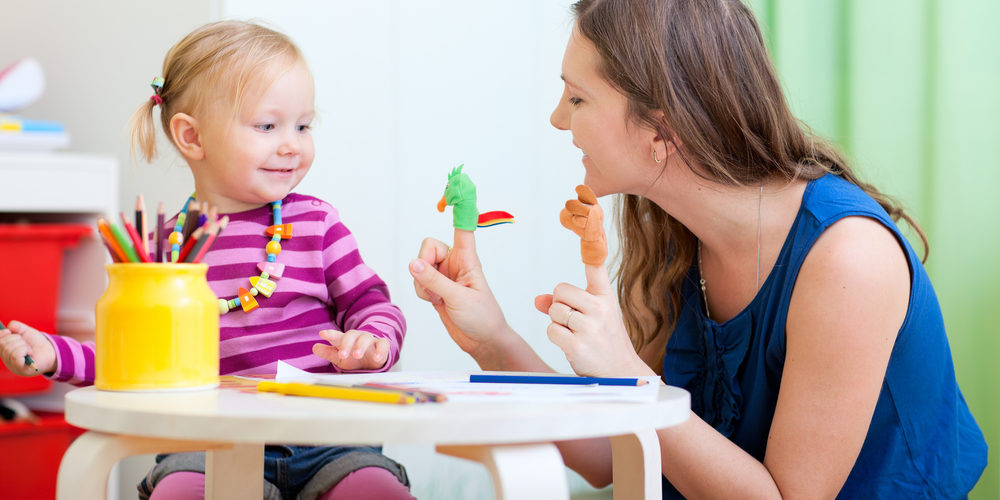“To assist a child, we must provide [them] with an environment which will enable [them] to develop freely.” Dr. Maria Montessori believed that children learn best when they are able to have autonomy. Rather than directing a child and interrupting their concentration constantly, teachers at Montessori schools aim to help children do things on their own. In other words, they foster independence and confidence.
Parents can bring concepts from any Montessori school in Philadelphia and introduce these beneficial philosophies into their home with a little preparation.
The Prepared Environment
One of the core concepts that Dr. Maria Montessori came up with is called the “prepared environment.” In the Montessori classroom, this looks like space that is dedicated to learning and freedom. In such a space, the child is their own teacher, and the teachers merely act as guides. Children are encouraged to select their own tasks and work on that task for as long as they wish, without any interruptions or assistance unless they ask for it.
The prepared environment is designed so that children can brush up on valuable skills and feel the accomplishment that comes with it. They also gain self-reliance. The prepared environment is also self-correcting. An adult isn’t needed to say what was done wrong, because the student will see their error. For example, if the child spills water when trying to pour themselves a drink, they’ll know they weren’t successful. So they’ll clean up the mess and try again.
So how do you do this at home?
One way is to have a space where your child can hang their own coat. Set up pegs or hooks that are child-height. You can even add a cubby for their winter gloves, hat, and scarf. That way, everything your child needs to prepare is within reach. You can also purchase a child-sized table and chairs for the living room or their bedroom, a stool in the bathroom for them to reach the sink, and spaces where their toys and books can be organized.
Everything should be eye-level. Your child can then see their choices, choose one item, and then return it to that space when they are finished using it.
Practice Real-Life Skills
At Fishtown Montessori School, children learn the essentials for taking care of themselves, as well as their environment and the other people in it. They organize the space, clean up after themselves, wash the tables, assist younger kids, and prepare their own snacks. In addition to mastering such useful skills, they understand what it means to be a community. These are things that they carry with them well into adulthood.
You can do the same at home. Aside from preparing the household for your child, you should also encourage them to help out. For example, young children can be recruited to help fold clothing, clean their room, water plants, and care for the pets. Tweens and teenagers can wash dishes, mop floors, and take out the garbage. Adolescents can help out with home repair, work on technology, read to their younger siblings, and every other task they have already mastered throughout the years.
Modeling, Inviting, and Practicing
Here is a concept that Montessori teachers incorporate into their lessons that parents can bring home with them: modeling. Children are always looking to their role models for the ideal way to accomplish a task. By modeling the correct way to manage tasks, your children will be capable of doing much more.
Instead of merely labeling shelves where things belong, you can model to your child the proper place of an object by having her practice putting it away. You might need to demonstrate skills once or twice, but your child will soon understand what to do and will act independently.
The same works for older children. You might need to show them how to turn on and load the washing machine, but after that demonstration, they will be eager to attempt it on their own. Observe their progress or invite them to practice under your guidance. Soon, your tween or teenager will be doing their own laundry without any need for assistance.
Kid-Friendly Kitchen
Do you want to foster your child’s independence and capabilities? Welcome them into the kitchen. Let’s face it, we spend a lot of time in the kitchen, and there are a lot of life skills that we can practice in the space. But it tends to be designed for adults. In the similar vein of preparing the environment for learning and independence throughout the house, you can set up the kitchen to make it more open to younger children. Place your child’s snacks and pantry items on lower shelves. Clear out a cabinet where they can access their child-sized dishes and cutlery.
As your child gets older, you can set up a stool near the sink so they can help wash their dishes. And remember, as your child gets older, the environment can grow with them. The key concept from Montessori is having your child engaged in daily activities at-home, so they can feel involved and gain mastery over kitchen-based skills.
Final Thoughts
Montessori schools in Philadelphia use these concepts throughout the day, and you can bring them home to encourage independence in your child too. Prepare the environment and arrange your home so that your child can do things on their own. Afterwards, observe their progress and offer guidance only when they truly need it. By doing so, you encourage their growth into an independent human.






